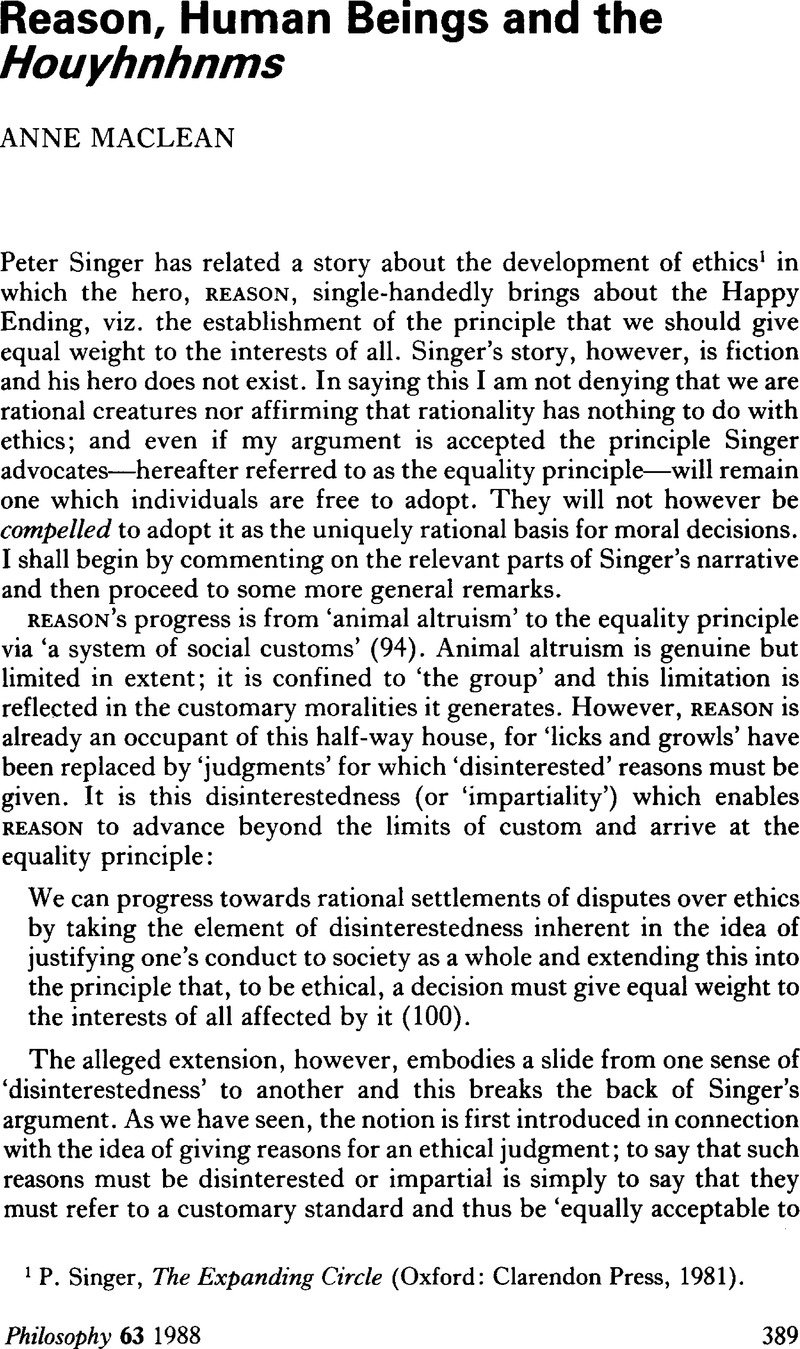Published online by Cambridge University Press: 30 January 2009

1 Singer, P., The Expanding Circle (Oxford: Clarendon Press, 1981).Google Scholar
2 Conspicuous representatives of this school of thought are Michael Tooley and John Harris. See for example their contributions to Applied Ethics (Oxford University Press, 1986) edited by Singer, .Google Scholar
3 It is only fair however to draw attention to Singer's remark that ‘it is [not] irrational for people to prefer their own interests and those of their families to the interests of strangers’ (153). Nevertheless, he constantly reiterates the claim that the equality principle is alone ‘the rational component of ethics’ (151). It is also fair to say that Singer himself regards the ‘shift’ to ‘a point of view that is fully universal’ as ‘tremendous’ (113). My point is not simply that it is tremendous, but that contra Singer, there is nothing in ‘the autonomy of reasoning’ (113) which must lead us to make it.
4 Swift, JonathanGulliver's Travels, Part IVGoogle Scholar, ‘A Voyage to the country of the Houyhnhnms’. All page references are to the Folio Society edition of 1975.